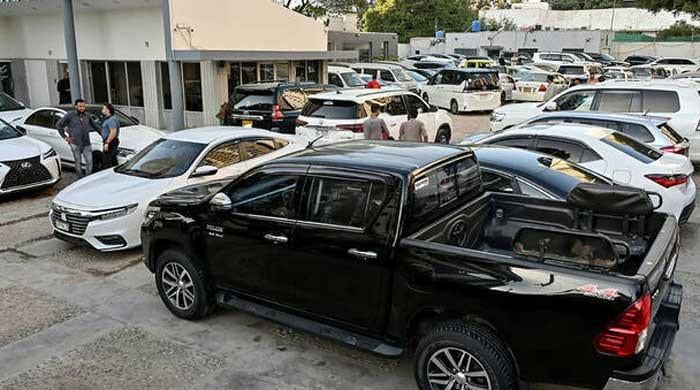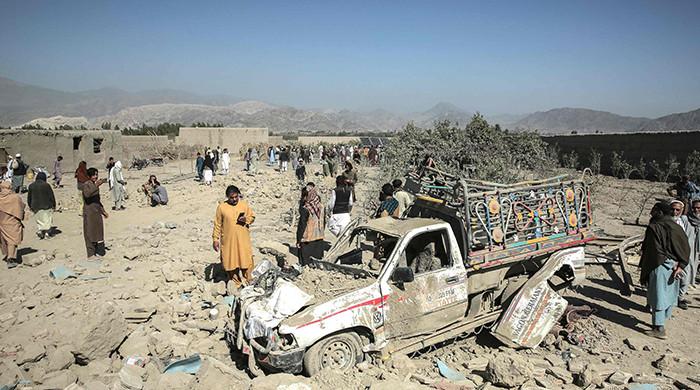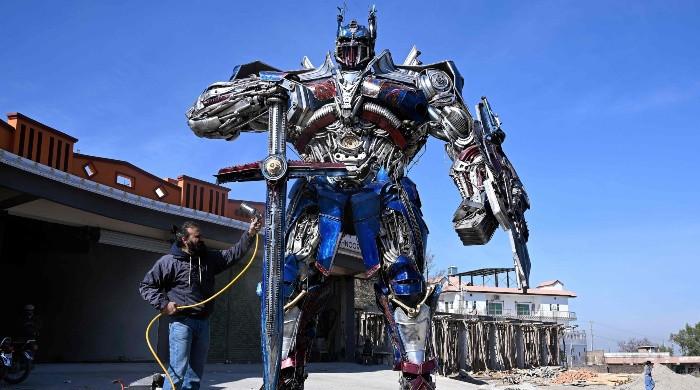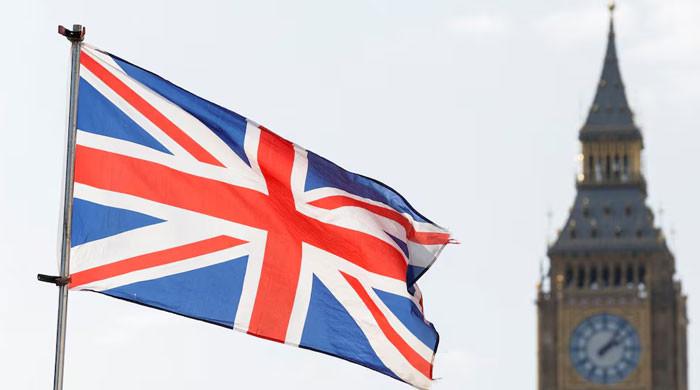Pakistan eyes 60% clean energy by 2030, PM Imran Khan tells UN climate change summit
"I assure you that Pakistan will be doing its best to make its contribution to mitigate the effects of climate change," says PM Imran Khan
December 12, 2020
- Pakistan to opt for "nature-based solutions" to mitigate climate change effects
- The government has decided not to have coal-based power
- Pakistan to plant 10 billion trees in the next three years
Prime Minister Imran Khan on Saturday told the United Nations' climate change summit that Pakistan eyes 60% clean energy by 2030, in its bid to mitigate the effects of climate change.
Addressing the summit, the premier said that 30% of all the country's vehicles will run on electricity in the near future.
"I assure you that Pakistan will be doing its best to make its contribution to mitigate the effects of climate change," the premier said.
"Pakistan is the country whose contribution to global emission is less than 1%, yet and sadly, we are the fifth most vulnerable country to climate change," PM Imran Khan said.
The prime minister, explaining what Pakistan had decided to do about climate change, said that the country has decided to opt for "nature-based solutions" to mitigate the effects.
He said that firstly, Pakistan will plant 10 billion trees in the next three years. "Secondly, we have increased the number of national parks and protected areas from 30 to 45," he added.
The prime minister said that at the same time, the government has decided that Pakistan will not have power based on coal. "We have already scrapped two coal power projects that were supposed to produce 2,600MW energy."
The premier said that Pakistan had replaced the project through hydroelectricity.
As far as Pakistan's indigenous coal goes, the premier said the country had decided to produce energy, either by coal to liquid or coal to gas so that coal does not burn to generate power.
The summit marks the fifth anniversary of the Paris Agreement.
At the summit, it is expected that the participating countries will set out new ambitious commitments under three pillars of the Paris Agreement, namely mitigation, adaptation and finance.
The summit
The United Kingdom was to host this year's UN's climate change summit in Glasgow but the event was postponed to November 2021 due to the coronavirus pandemic.
UN Secretary-General Antonio Guterres and Johnson announced they will co-host a "landmark global event" on December 12.
Dubbed as the "sprint to Glasgow", the event will be held amid signs that the world is off-track to limit global temperature rise and that a carbon-free economy is long overdue.
“The climate emergency is fully upon us, and we have no time to waste," Guterres said in a statement. “The answer to our existential crisis is swift, decisive, scaled up action and solidarity among nations”.
According to the UN, the event aims to "rally momentum and call for much greater climate action and ambition".
"National governments will be invited to present more ambitious and high-quality climate plans, as well as COVID recovery plans, new finance commitments and measures to limit global warming to 1.5C."
The event will bring together leaders from across all levels of government, as well as the private sector and civil society, to present new measures, boosting ambition and action.











